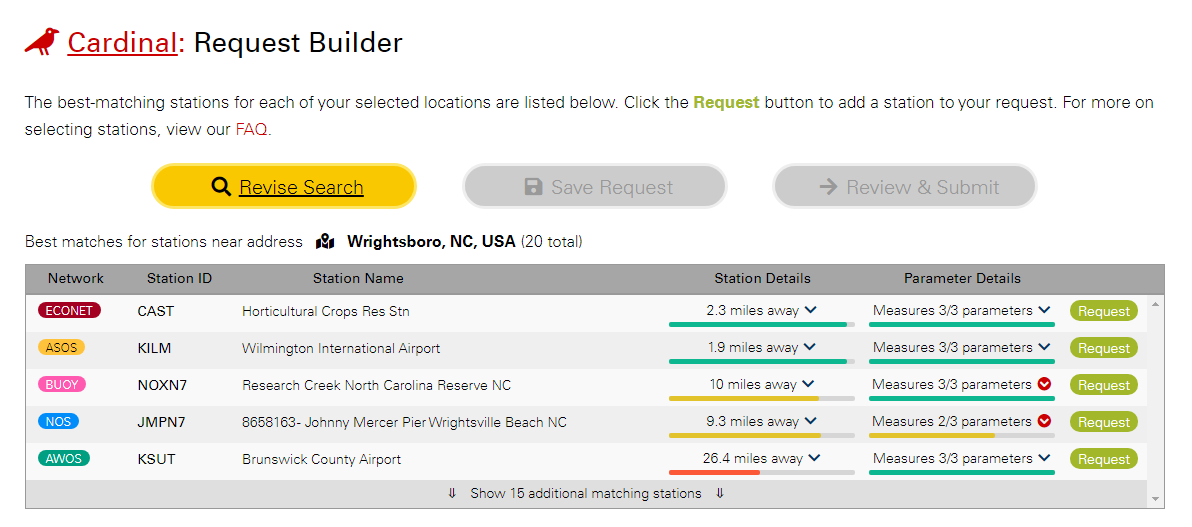North Carolina State Climate Office Offers Data on Demand
The North Carolina State Climate Office (NCSCO) has a new data request tool that makes it faster and easier than ever before to access weather and climate data from across North Carolina.

Need Data? Flock to Cardinal!
Here are a few of the highlights:
- Data is free for all users. You only need an NCSCO user account (also free) to access historical weather observations. While we do limit the number of data points you can retrieve per request, per day, and per month in order to reduce demands on our database, most requests should fall under these limits.
- The data you need is a simple search away. If you’re sweating over which stations measure relative humidity, or if ASOS sounds like something you’d dip your fries in, then fear not! Cardinal takes the guesswork out of identifying the best weather stations for your request. Using the Request Builder and its step-by-step interface, select the locations you’re interested in, the time periods over which you want data, and the parameters you need, and the Cardinal system will show you which stations are the best match.
- Requests are now fully automated. After submitting a request using the Request Builder, you should have your data in just seconds as its automated routines retrieve and prepare your data faster than ever before. Whether you want data from 2020 or 1920, it’s all accessible in an instant through Cardinal.
- New insights into weather stations. If you’re looking for the latest local conditions or exploring the history of a particular weather station, let the Station Scout tool in Cardinal be your guide. It uses intuitive, graphical displays to show current conditions, station details, historical availability, and recent data. With hundreds of active weather stations, there is always plenty to discover!
NCSCO will be adding more information to their website in the months ahead, including additional North Carolina-specific activities and climate change content to our revamped educational pages, findings from their research projects, and additional tools to help you explore data from around the state.
Learn more about the State Climate Office’s New Website
- Categories:


